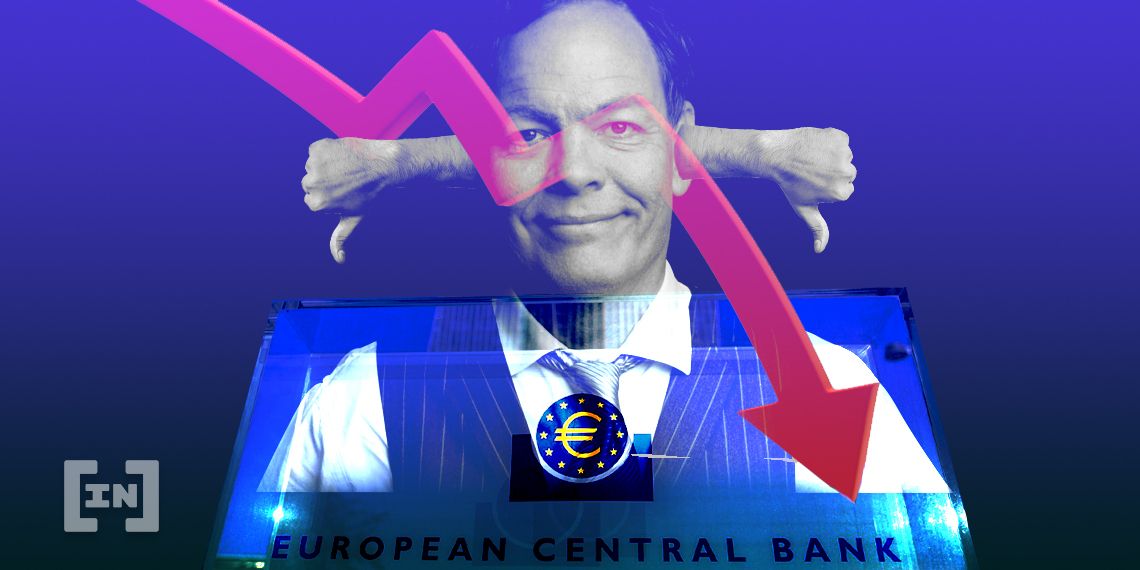In a speech at a roundtable on monetary policy on Wednesday, Isabel Schnabel, Executive Board member of the European Central Bank, reviewed the ECBs experience with its negative interest rate policy.
In the speech, she argued,
that the transmission of negative rates has worked smoothly and has been effective in stimulating the economy and raising inflation.Schnabel’s remarks covered many points — first, the fact that negative rates “can have side effects on banks’ profitability and risk-taking behavior.” But that the experience of the Euro area over the past few years suggests that,
the positive effects dominated, supported by the use of other policy measures that directly mitigate the costs of negative rates.On the flip side, she also noted that the global pandemic would disrupt some benefits of the negative rates. And that the global recession caused by the pandemic is,
likely to lead to a surge in banks’ non-performing loans.In the long run, Schnabel sees the potential for side effects to gain importance and issued a governmental call to arms.
As negative rates to a large extent reflect adverse macro trends outside the remit of central banks, a forceful response by governments to the pandemic is necessary and may pave the way for positive rates in the future,she said.
The ECB’s Negative Interest Rates
In 2014, the ECB was the first central bank to adopt a negative interest rate policy. In theory, negative rates help companies and consumers by cutting financing costs. This encourages consumers and banks to take more risk by borrowing and lending money, hence boosting the economy. However, such policies are controversial, and debate has raged in central banking circles on their efficacy. In a recent Forbes article exploring the possibility of similar rates in the U.S., Federal Reserve Chairman Jerome Powell said,the evidence on whether it [negative interest rate policy] helps is quite mixed.
Critical Reception
Critics of sub-zero rates allege that such a policy comes with a raft of negative consequences: things like penalizing prudent savers, bailing out reckless borrowers, and raising the cost of living for everyday people. Many viewed the speech with skepticism, if not outright hostility. Well-known Bitcoin advocate and TV anchor Max Keiser tweeted his thoughts:In response to the speech, one Twitter user posited thatTRANSLATION:
— Max Keiser (@maxkeiser) August 26, 2020
We kept insolvent banks paying their execs bonuses while poverty skyrockets and you can’t stop us. https://t.co/xmLtf2On3v
central banks don’t solve problems; they breed them. Three huge bubbles in just 20-years with each bubble much larger than the one which preceded it. A direct consequence of today’s central bank dominated economies.Another was even more direct,
it is so easy to say non-sense things when your wage is guaranteed, and there won’t be penalties. European bureaucrats have zero skin in the game. The EU system is completely broken.
Unprecedented Times
Negative interest rates are a monetary policy tool for extreme economic conditions, and some argue they require complementary regulations to have any chance of working. In a time when central banks around the world are printing money and considering all emergency measures to prop up their economies, criticisms like those above are likely to intensify. As for Schnabel, she argued that governments need to address the structural reasons for low bank profitability such as “lack of consolidation in the sector,” and “by making progress on eurozone banking union and capital markets union as well as boosting the economic recovery with fiscal policy.”
Top crypto platforms in the US
Disclaimer
In line with the Trust Project guidelines, this price analysis article is for informational purposes only and should not be considered financial or investment advice. BeInCrypto is committed to accurate, unbiased reporting, but market conditions are subject to change without notice. Always conduct your own research and consult with a professional before making any financial decisions. Please note that our Terms and Conditions, Privacy Policy, and Disclaimers have been updated.
Colin Adams
Colin is a writer, researcher, and content marketer with a keen interest in the future of money. His writing has been featured in numerous cryptocurrency publications, and his holdings don't amount to more than a handful of BAT.
Colin is a writer, researcher, and content marketer with a keen interest in the future of money. His writing has been featured in numerous cryptocurrency publications, and his holdings don't amount to more than a handful of BAT.
READ FULL BIO
Sponsored
Sponsored

